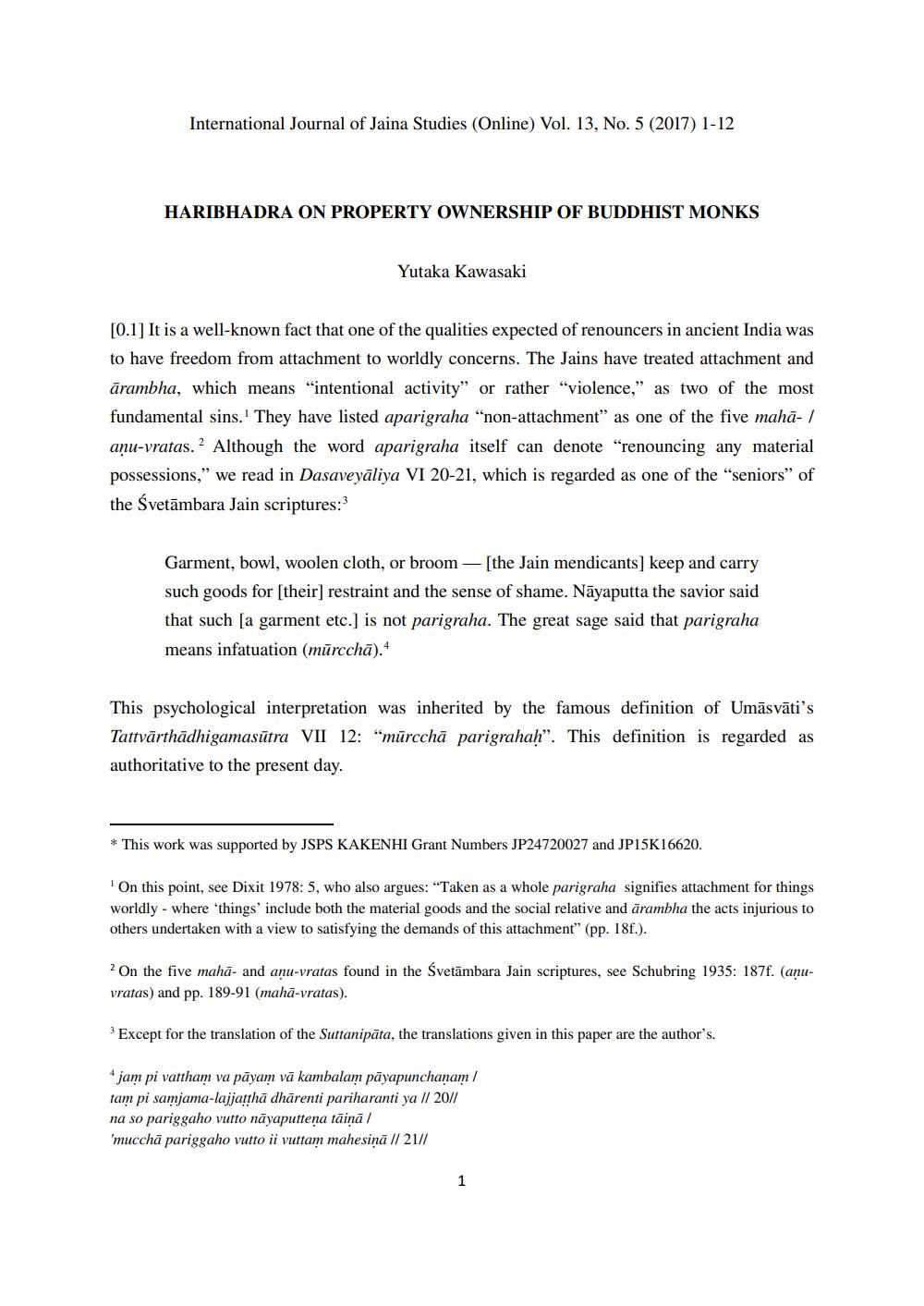Book Title: Haribhadra On Property Ownership Of Buddhist Monk Author(s): Yutaka Kawasaki Publisher: Yutaka Kawasaki View full book textPage 1
________________ International Journal of Jaina Studies (Online) Vol. 13, No. 5 (2017) 1-12 HARIBHADRA ON PROPERTY OWNERSHIP OF BUDDHIST MONKS Yutaka Kawasaki [0.1] It is a well-known fact that one of the qualities expected of renouncers in ancient India was to have freedom from attachment to worldly concerns. The Jains have treated attachment and ārambha, which means "intentional activity" or rather "violence," as two of the most fundamental sins. They have listed aparigraha "non-attachment" as one of the five maha- | anu-vratas. Although the word aparigraha itself can denote "renouncing any material possessions," we read in Dasaveyāliya VI 20-21, which is regarded as one of the "seniors" of the Svetämbara Jain scriptures: Garment, bowl, woolen cloth, or broom - [the Jain mendicants] keep and carry such goods for [their] restraint and the sense of shame. Nayaputta the savior said that such [a garment etc.] is not parigraha. The great sage said that parigraha means infatuation (mūrcchā).+ This psychological interpretation was inherited by the famous definition of Umäsväti's Tattvärthadhigamasutra VII 12: "mürecha parigrahah". This definition is regarded as authoritative to the present day. * This work was supported by JSPS KAKENHI Grant Numbers JP24720027 and JP15K16620. On this point, see Dixit 1978: 5, who also argues: "Taken as a whole parigraha signifies attachment for things worldly - where 'things' include both the material goods and the social relative and arambha the acts injurious to others undertaken with a view to satisfying the demands of this attachment" (pp. 18f.). 2 On the five mahā- and anu-vratas found in the Svetambara Jain scriptures, see Schubring 1935: 187f. (anuvratas) and pp. 189-91 (mahā-vratas). 3 Except for the translation of the Suttanipāta, the translations given in this paper are the author's. 4 jam pi vattham va pāyam vā kambalam pāyapunchaṇam/ tam pi samjama-lajjaṇṭhā dhārenti pariharanti ya // 20/1 na so pariggaho vutto nayaputteņa tāiņā / 'muccha pariggaho vutto ii vuttam mahesiņā || 21/1 1Page Navigation
1 2 3 4 5 6 7 8 9 10 11 12
